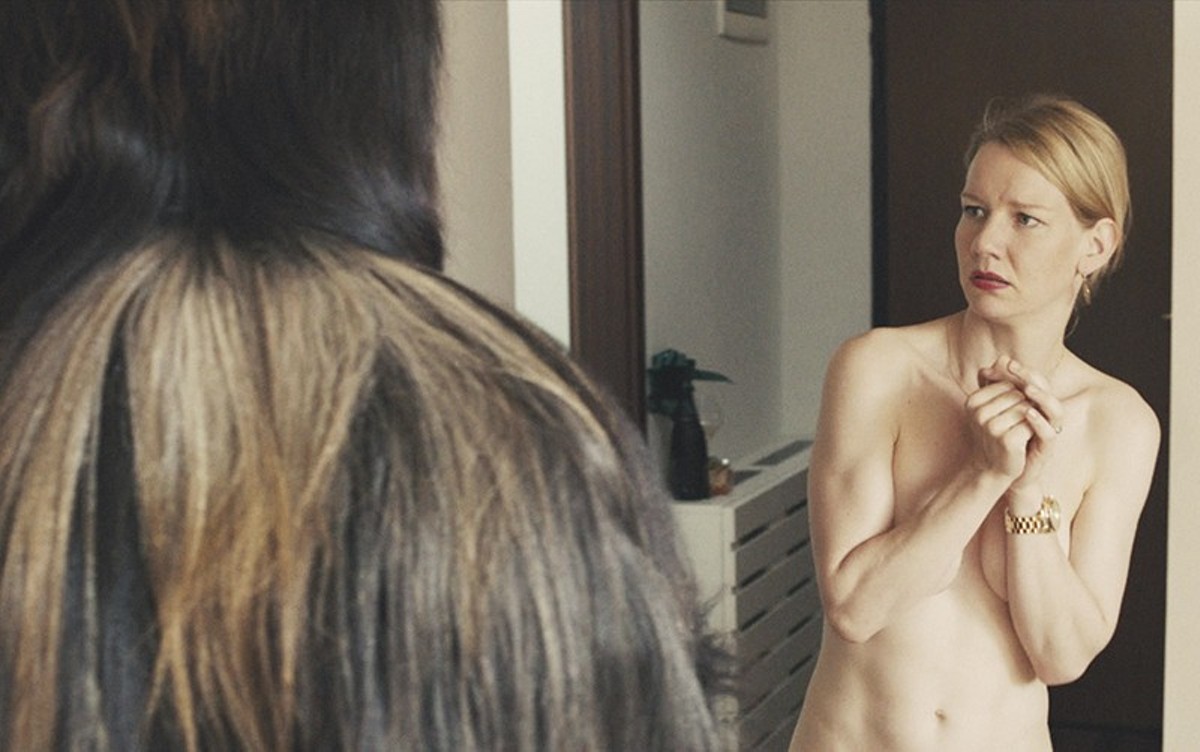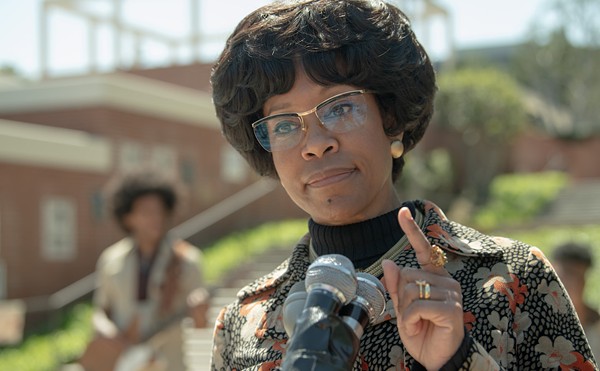Winfried Conradi, the man at the center of Maren Ade's film Toni Erdmann, is a bearish, nearly retired music teacher, an aging baby boomer whose response to the mundane and unimaginative world around him is to slip in a set of grotesquely formed false teeth and take on new personae, to the bewilderment of his neighbors and the occasional unwary delivery man. He's a gentle anarchist, waging mild protests against the world solely for his own amusement.
Winfried's daughter Ines has fallen far from the familial tree: She's a no-nonsense careerist in the international business world, with a personal assistant at arm's reach and cell phone fixed in her sight line. When her father pays a surprise visit during her negotiations with an oil company in Bucharest, she tries to fit him into her schedule for a few days before shipping him back to Germany; he rebels by grabbing an ill-fitting suit, a wig and, of course, his false teeth, and introduces himself to her business colleagues as Toni Erdmann, life coach. What follows is a gorgeously loony tug-of-war between incompatible values, with Ines trying to preserve her place on the corporate ladder while Toni shakes it from its base.
Ade's film is a real anomaly (or perhaps, to use the current jargon, an outlier), a serious comedy that offers broad laughs as well as thoughtful insights on contemporary Europe and the global economy. It's a stinging satire of the post-capitalist world, as well as a touching and at times genuinely goofy look at the eternal family struggle of young vs. old, conformity vs. rebellion. As Winfried/Toni, Peter Simonischek is a gifted clown, blithely wreaking mischief, but Sandra Huller's Ines proves to be his equal, pushed into playing her father's helpless straight woman but gradually revealing her own tongue-in-cheek way of rebelling against the business establishment.
Ade has said that Toni Erdmann was inspired by watching clips of comedian Andy Kaufman, whose obnoxious alter ego Tony Clifton rudely confronted audiences and bludgeoned them with his perverse twist on show business. You can see a resemblance, but Simonischek's Toni, while matching Clifton's grossly exaggerated physical appearance, lacks the aggression and anger of Kaufman's character.
Ade's film reminded me more of another great, understated political allegory, Being There. In both the Jerzy Kosinski novel and Hal Ashby's masterful 1979 film version, the circles of power are infiltrated by naive outsider Chance Gardiner. Toni Erdmann is Kosinski's Chance Gardiner in reverse, a knowing trickster rather than a sublime innocent, yet they achieve some of the same effects. In sharp, absurdist strokes, Ade has created a witty and humane cartoon about holding on to simple values in a complicated world.






